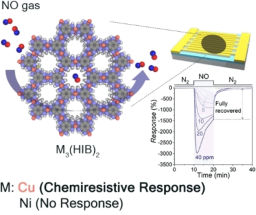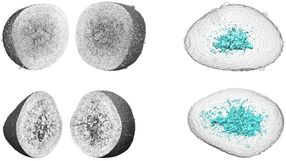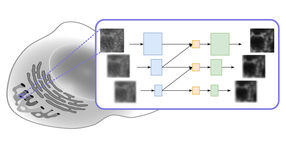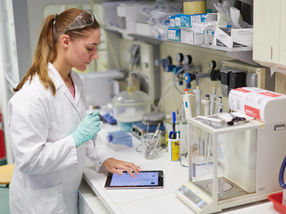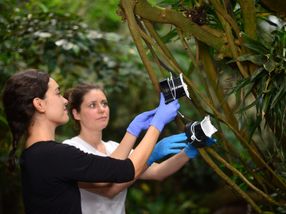Gene discovery unlocks mysteries to our immunity
Australia's national science agency CSIRO has identified a new gene that plays a critical role in regulating the body's immune response to infection and disease.
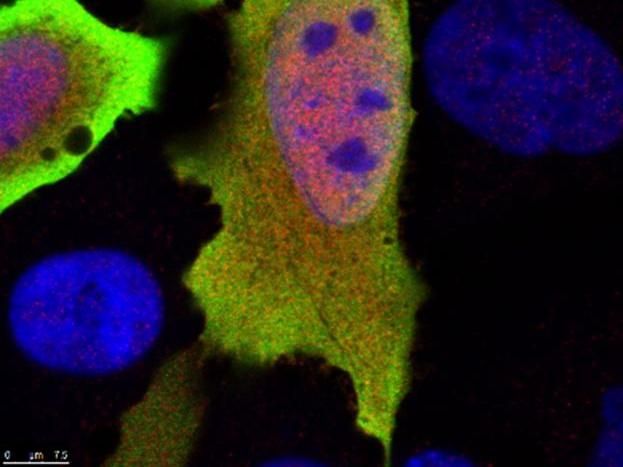
This is the C6orf106 or 'C6' gene.
CSIRO
The discovery could lead to the development of new treatments for influenza, arthritis and even cancer.
The gene, called C6orf106 or "C6", controls the production of proteins involved in infectious diseases, cancer and diabetes. The gene has existed for 500 million years, but its potential is only now understood.
"Our immune system produces proteins called cytokines that help fortify the immune system and work to prevent viruses and other pathogens from replicating and causing disease," CSIRO researcher Dr Cameron Stewart said.
"C6 regulates this process by switching off the production of certain cytokines to stop our immune response from spiralling out of control.
"The cytokines regulated by C6 are implicated in a variety of diseases including cancer, diabetes and inflammatory disorders such as rheumatoid arthritis."
The discovery helps improve our understanding of our immune system, and it is hoped that this understanding will enable scientists to develop new, more targeted therapies.
"Even though the human genome was first fully sequenced in 2003, there are still thousands of genes that we know very little about," Dr Rebecca Ambrose, a former CSIRO researcher, now based at the Hudson Institute of Medical Research said.
"It's exciting to consider that C6 has existed for more than 500 million years, preserved and passed down from simple organisms all the way to humans. But only now are we gaining insights into its importance."
Having discovered the function of C6, the researchers are awarded the privilege of naming it, and are enlisting the help of the community to do so.
"The current name, C6orf106, reflects the gene's location within the human genome, rather than relating to any particular function," Dr Stewart said.
"We think we can do better than that, and are inviting suggestions from the public."
A shortlist of names will be made available for final approval by a governing third party.
The breakthrough builds on decades of work in infectious diseases, by researchers from CSIRO, Australia's national science agency.
Original publication
Original publication
Rebecca L. Ambrose, Yu Chih Liu, Timothy E. Adams, Andrew G. D. Bean, and Cameron R. Stewart; "C6orf106 is a novel inhibitor of the interferon-regulatory factor 3-dependent innate antiviral response"; JBC; 2018
Topics
Organizations
Other news from the department science

Get the analytics and lab tech industry in your inbox
From now on, don't miss a thing: Our newsletter for analytics and lab technology brings you up to date every Tuesday. The latest industry news, product highlights and innovations - compact and easy to understand in your inbox. Researched by us so you don't have to.
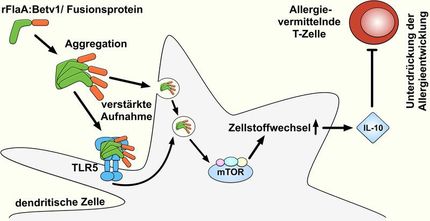
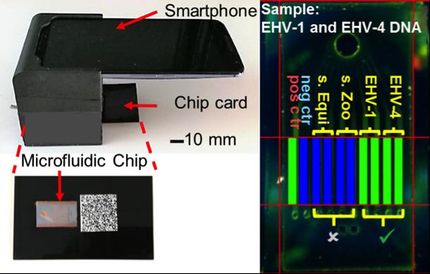


![[Fe]-hydrogenase catalysis visualized using para-hydrogen-enhanced nuclear magnetic resonance spectroscopy](https://img.chemie.de/Portal/News/675fd46b9b54f_sBuG8s4sS.png?tr=w-712,h-534,cm-extract,x-0,y-16:n-xl)
